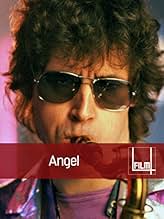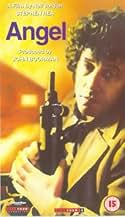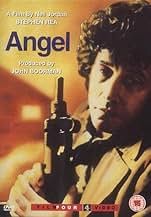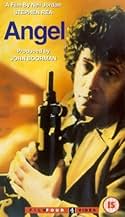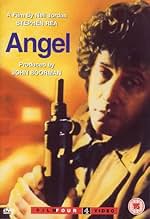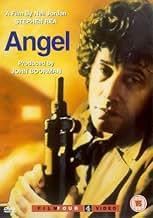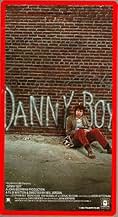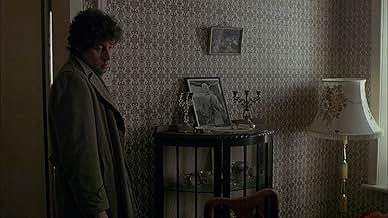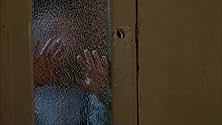Saxophonist Danny witnesses the murder of his band manager and a non-verbal deaf girl after a gig. Questioned by the police, he remembers only the orthopedic shoes of the killers' leader. So... Read allSaxophonist Danny witnesses the murder of his band manager and a non-verbal deaf girl after a gig. Questioned by the police, he remembers only the orthopedic shoes of the killers' leader. So begins his quest to avenge them.Saxophonist Danny witnesses the murder of his band manager and a non-verbal deaf girl after a gig. Questioned by the police, he remembers only the orthopedic shoes of the killers' leader. So begins his quest to avenge them.
- Director
- Writer
- All cast & crew
- Production, box office & more at IMDbPro
Featured reviews
Outstanding performances, Chris Menges expressive, painterly photography, an eloquently humane text, Neil Jordan's stylish, sporadically cruel 80s debut retains all of its dramatic intensity, this eternally lustrous 'Angel' is exceptionally refined cinema. The youthful, strikingly handsome, Stephen Rae, is magnetic, his desire for vengeance manifestly feral, and recognizably human. The gifted, passionate, profoundly insecure musician fatefully switching his cherished saxophone's mellifluous song for the sinister Stentorian discords of a machine gun appears strangely justified; and yet, his inexorable decent into a hell of his own making is well deserved.
Artfully directed, and undeniably wonderful, Neil Jordan's elegiac drama is emphatically a product of its turbulent times, with threats of sectarian reprisals omnipresent throughout and, yet, somehow it also feels miraculously timeless; a lively, emotionally complex world of rousing music, ceaselessly shifting light and shade, the profane carnality of murder, and the euphoria of deeply felt love. Whether bathed in hot neon or the cooler, earthier tones of Ireland's mythical countryside, Jordan's captivating aesthetic is remarkably assured, earnest, and profoundly moving,'Angel' remains unleavened cinematic poetry. Andy's retribution is bluntly expressed in an almost prosaic manner; swift, brutal, frequently haphazard, even shorn of all its fetishized glamour, the dark allure of his violence remains utterly compelling.
Artfully directed, and undeniably wonderful, Neil Jordan's elegiac drama is emphatically a product of its turbulent times, with threats of sectarian reprisals omnipresent throughout and, yet, somehow it also feels miraculously timeless; a lively, emotionally complex world of rousing music, ceaselessly shifting light and shade, the profane carnality of murder, and the euphoria of deeply felt love. Whether bathed in hot neon or the cooler, earthier tones of Ireland's mythical countryside, Jordan's captivating aesthetic is remarkably assured, earnest, and profoundly moving,'Angel' remains unleavened cinematic poetry. Andy's retribution is bluntly expressed in an almost prosaic manner; swift, brutal, frequently haphazard, even shorn of all its fetishized glamour, the dark allure of his violence remains utterly compelling.
I suspect the pressures of commercialism to be the dominant factor behind the decline of some of the world's greatest directors in their final years. Sad examples include Wyler, De Sica and Carol Reed. Even as sustained a talent as David Lynch has not produced anything quite as imaginative as the early "Eraserhead". Possibly the most regrettable loss to commercialism in recent years has been that of Neil Jordan who has somehow not even managed to produce a core of outstanding work. Only his brilliant debut "Angel" serves as a reminder of what might have been. Although set at the height of the Northern Ireland Troubles, this is in no sense a political film like "Some Mother's Son" and "In The Name Of The Father". Rather is it a character study of a highly talented saxophonist with an insecure temperament that even makes him doubt his ability as a musician. He becomes completely unstabilised when he witnesses a gangland - subtly not a political - atrocity, so much so that he embarks on a murderous spree of revenge. The gun becomes a substitute for the saxophone - a simplistic but marvellously satisfying metaphor in this context. As he journeys deeper into murderous darkness he begins to lose his tender relationship with Dee, a singer in his band. The feeling of what might have developed between them is the film's tragic core. What partly makes "Angel" so remarkable is the terseness of its dialogue, so much so that we find ourselves remembering lines long afterwards in the same way that we do from films as diverse as "The Third Man" and "The Discreet Charm of the Bourgeoisie". The film is also paced in such a skillful way that it can afford to pause to encompass such vignettes as Aunt Mae reading the tea-leaves and the Salvation Army musician who has played for them all but now plays for the Lord. "Angel" is full of small details that hauntingly resonate long after the film is over.
Bizarre. A philosophical gangster film in the same vein as Stephen Frears' "The Hit"... and if you loved the aesthetic displayed in Jordan's own "Mona Lisa", then you're laughing!
In this movie we follow a young Irish sax player who accidentally witnesses the murder of a young mute girl he just met. He decides not to tell anything to the police and track the killers down all by himself. Even if it sounds like one, it is all but an action movie. What it really is, is a great psychological drama which in spite of its pretty amateurish style really embarks us in its story. Stephen Rea is as silent and as good as usual. His cold and severe but at the same time fragile look fits magnificently in this tale of revenge and naïveté. Undoubtedly, only an Irish director could have done a movie with such an atmosphere and as much style. We can almost feel the dirt, despair and disillusion in the Irish suburb as well as the corrupted purity and quietness of the country. Danny is the spokes-man of a disenchanted nation only trying to understand what is going on and hoping for a long-awaited revenge.
It is a really splendid first film and although this is in the terrible times of the Northern Ireland troubles Neil Jordan can still use some great photography and some music. At the very start there is a wonderful portrait which captured the excellent Stephen Rea, the haunting saxophone and the young deaf mute wanders over, the name he calls Angel. There is great atmosphere in the Ballroom, especially Honor Heffernan probably Ireland's first and foremost jazz singer but then there will be violence and Rea will find a way to acquire a machine gun. It is a clever way that Jordan mixes the great dialogue, the wonderful music, the horrible killing and some detection.
Did you know
- TriviaHonor Heffernan, who makes her acting debut in this, sings all her songs herself. She had been a member of a successful rock band and had performed as a singer in Ireland and Europe since the early 1970s. She was Ireland's first female rock singer.
- GoofsAt 47:10 when Danny hits the man in the head and knocks him down, it's obvious that the blow doesn't actually connect.
- ConnectionsFeatured in Century of Cinema: 100 ans de cinéma: Une affaire irlandaise (1995)
- SoundtracksDanny Boy
(uncredited)
Irish traditional melody
Played by Danny on the saxophone
- How long is Angel?Powered by Alexa
Details
- Release date
- Countries of origin
- Language
- Also known as
- Danny Boy
- Filming locations
- Production companies
- See more company credits at IMDbPro
- Runtime1 hour 30 minutes
- Sound mix
- Aspect ratio
- 1.85 : 1
Contribute to this page
Suggest an edit or add missing content


